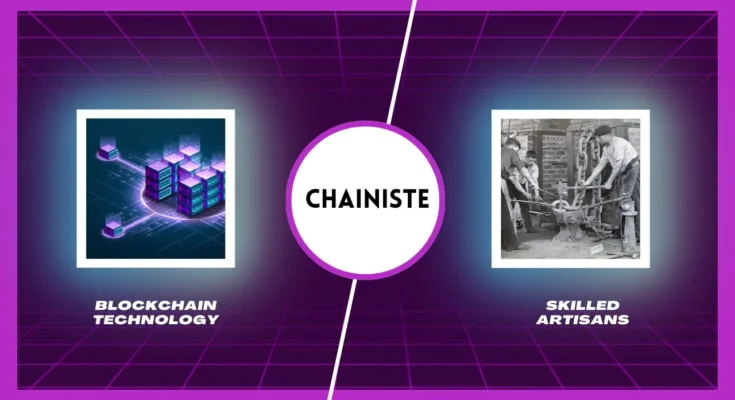Introduction
The term “chainiste” carries significant weight in two distinct fields: jewelry and technology. In the jewelry industry, it refers to skilled artisans who specialize in creating intricate chains from precious metals. In the world of technology, “chainiste” is associated with blockchain technology, a revolutionary system that is transforming data security and transactions. This article provides a comprehensive overview of both applications of “chainiste,” exploring its importance in craftsmanship and digital ledger technology.
Chainiste in Jewelry Making
The Art of Chain Making
Chain making is an age-old craft that requires precision and creativity. A chainiste in this context is a jeweler who focuses on designing and fabricating chains. These chains can vary in style, from simple linked chains to complex patterns that require advanced skills. The materials used typically include gold, silver, and platinum.
Techniques and Tools
The craftsmanship of a chainiste involves various techniques such as soldering, weaving, and twisting metals to create durable and aesthetically pleasing products. Tools like pliers, cutters, and specialized bending equipment are essential to achieving the desired outcomes. The precision in crafting these chains ensures that they are not only beautiful but also strong enough to hold pendants and other jewelry pieces.
Trends and Market Demand
In recent years, there has been a resurgence of interest in bespoke and artisanal jewelry, which has put chainistes at the forefront of the jewelry market. Consumers are increasingly seeking unique pieces that stand out, prompting chainistes to innovate and experiment with new designs and materials.
Also Read: NS Horse Screen: The Cutting Edge Technology
Chainiste in Blockchain Technology
Blockchain Basics
In the realm of technology, “chainiste” refers to the systems and processes associated with blockchain technology. Blockchain is a decentralized ledger system that records transactions across multiple computers, ensuring that the data entered is immutable and transparent.
Applications of Blockchain
Beyond cryptocurrencies like Bitcoin, blockchain technology has a myriad of applications including supply chain management, financial services, and secure voting systems. The term “chainiste” in this context symbolizes the depth of knowledge and expertise required to develop and manage blockchain systems.
The Future of Blockchain
As technology advances, the role of a chainiste in blockchain is becoming increasingly crucial. Industries are exploring blockchain for its potential to provide secure, transparent, and efficient solutions to longstanding problems such as fraud, data breaches, and inefficiencies in logistics.
Career Paths and Education
Becoming a Jewelry Chainiste
For those interested in becoming a jewelry chainiste, the path involves a blend of artistic skill and technical training. Many chainistes start with a background in fine arts or jewelry design, supplemented by specialized courses in metalwork and chain making.
Careers in Blockchain Technology
Entering the blockchain industry typically requires a background in computer science, information technology, or a related field. Knowledge in cryptography, algorithm design, and network security is also advantageous. With blockchain still in its developmental stages, professionals have the opportunity to be at the forefront of a technological revolution.
Conclusion
Whether in the crafting of delicate jewelry or in securing digital transactions, “chainiste” signifies mastery and expertise. The dual significance of the term reflects the versatility and depth of the skills required in both fields. As consumer interest in unique jewelry designs grows and as industries continue to adopt blockchain solutions, the demand for skilled chainistes in both areas is likely to increase, making it a field ripe with opportunities for those willing to learn and innovate.
Also Read: Geöe: The Game-Changing Technology You Need to Know



